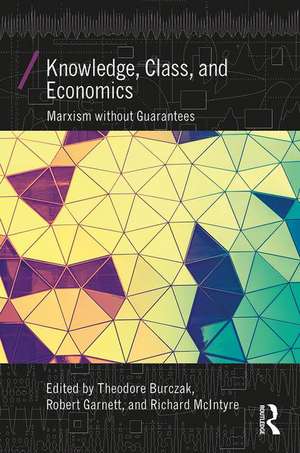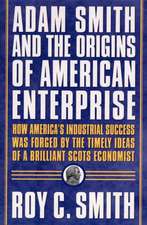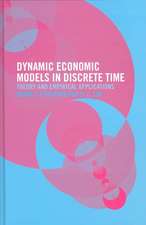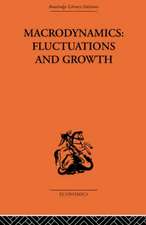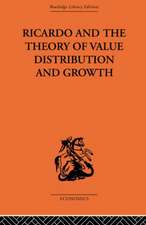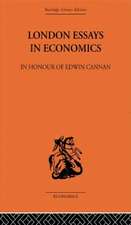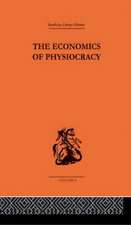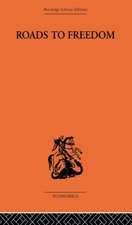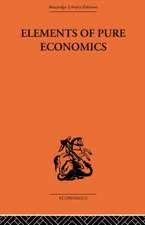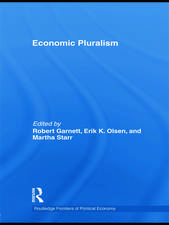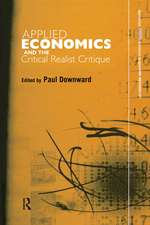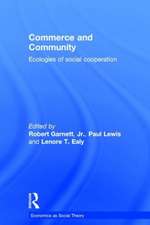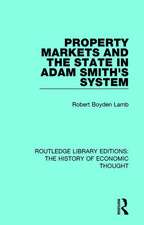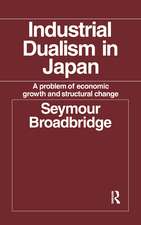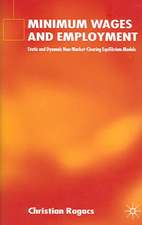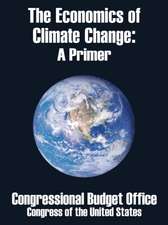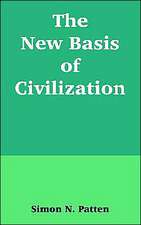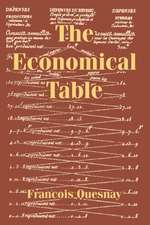Knowledge, Class, and Economics: Marxism without Guarantees: Economics as Social Theory
Editat de Theodore Burczak, Robert Garnett Jr., Richard McIntyreen Limba Engleză Paperback – 17 oct 2017
The title captures the defining ideas of the Amherst School: an open-system framework that presupposes the complexity and contingency of social-historical events and the parallel "overdetermination" of the relationship between subjects and objects of inquiry, along with a novel conception of class as a process of performing, appropriating, and distributing surplus labor. In a collection of 30 original essays, chapters confront readers with the core concepts of overdetermination and class in the context of economic theory, postcolonial theory, cultural studies, continental philosophy, economic geography, economic anthropology, psychoanalysis, and literary theory/studies.
Though Resnick and Wolff’s writings serve as a focal point for this collection, their works are ultimately decentered—contested, historicized, reformulated. The topics explored will be of interest to proponents and critics of the post-structuralist/postmodern turn in Marxian theory and to students of economics as social theory across the disciplines (economics, geography, postcolonial studies, cultural studies, anthropology, sociology, political theory, philosophy, and literary studies, among others).
| Toate formatele și edițiile | Preț | Express |
|---|---|---|
| Paperback (1) | 532.58 lei 6-8 săpt. | |
| Taylor & Francis – 17 oct 2017 | 532.58 lei 6-8 săpt. | |
| Hardback (1) | 1014.47 lei 6-8 săpt. | |
| Taylor & Francis – 17 oct 2017 | 1014.47 lei 6-8 săpt. |
Din seria Economics as Social Theory
-
 Preț: 279.80 lei
Preț: 279.80 lei - 15%
 Preț: 528.75 lei
Preț: 528.75 lei - 8%
 Preț: 441.23 lei
Preț: 441.23 lei - 15%
 Preț: 477.90 lei
Preț: 477.90 lei -
 Preț: 295.81 lei
Preț: 295.81 lei -
 Preț: 428.46 lei
Preț: 428.46 lei - 18%
 Preț: 1439.63 lei
Preț: 1439.63 lei - 15%
 Preț: 420.28 lei
Preț: 420.28 lei - 22%
 Preț: 354.65 lei
Preț: 354.65 lei - 15%
 Preț: 426.70 lei
Preț: 426.70 lei - 22%
 Preț: 358.26 lei
Preț: 358.26 lei -
 Preț: 377.66 lei
Preț: 377.66 lei -
 Preț: 413.76 lei
Preț: 413.76 lei -
 Preț: 477.99 lei
Preț: 477.99 lei -
 Preț: 417.20 lei
Preț: 417.20 lei - 15%
 Preț: 576.47 lei
Preț: 576.47 lei - 43%
 Preț: 207.05 lei
Preț: 207.05 lei - 26%
 Preț: 766.31 lei
Preț: 766.31 lei - 15%
 Preț: 430.45 lei
Preț: 430.45 lei - 26%
 Preț: 850.99 lei
Preț: 850.99 lei - 15%
 Preț: 456.21 lei
Preț: 456.21 lei - 15%
 Preț: 422.26 lei
Preț: 422.26 lei - 15%
 Preț: 458.59 lei
Preț: 458.59 lei - 15%
 Preț: 470.85 lei
Preț: 470.85 lei - 26%
 Preț: 1217.42 lei
Preț: 1217.42 lei - 18%
 Preț: 1672.42 lei
Preț: 1672.42 lei - 26%
 Preț: 1017.18 lei
Preț: 1017.18 lei - 15%
 Preț: 515.60 lei
Preț: 515.60 lei - 25%
 Preț: 251.80 lei
Preț: 251.80 lei - 18%
 Preț: 1000.27 lei
Preț: 1000.27 lei - 18%
 Preț: 1283.60 lei
Preț: 1283.60 lei - 15%
 Preț: 463.49 lei
Preț: 463.49 lei - 15%
 Preț: 478.96 lei
Preț: 478.96 lei
Preț: 532.58 lei
Nou
Puncte Express: 799
Preț estimativ în valută:
101.93€ • 106.13$ • 86.14£
101.93€ • 106.13$ • 86.14£
Carte tipărită la comandă
Livrare economică 10-24 martie
Preluare comenzi: 021 569.72.76
Specificații
ISBN-13: 9781138634480
ISBN-10: 1138634484
Pagini: 532
Ilustrații: 16
Dimensiuni: 156 x 234 x 40 mm
Greutate: 1.47 kg
Ediția:1
Editura: Taylor & Francis
Colecția Routledge
Seria Economics as Social Theory
Locul publicării:Oxford, United Kingdom
ISBN-10: 1138634484
Pagini: 532
Ilustrații: 16
Dimensiuni: 156 x 234 x 40 mm
Greutate: 1.47 kg
Ediția:1
Editura: Taylor & Francis
Colecția Routledge
Seria Economics as Social Theory
Locul publicării:Oxford, United Kingdom
Public țintă
Postgraduate and UndergraduateCuprins
List of Figures and Tables
List of Contributors
Introduction: Marxism without guarantees
Richard McIntyre, Theodore Burczak, and Robert Garnett
Contributors
Part I: Knowledge, class, and economics
Chapter One
A Conversation with Rick Wolff
Richard McIntyre
Part II: Economics without guarantees
Chapter Two
Strangers in a Strange Land: A Marxian Critique of Economics
David F. Ruccio
Chapter Three
Marxian Economics without Teleology: The Big New Life of Class
Bruce Norton
Chapter Four
Class-Analytic Marxism and the Recovery of the Marxian Theory of Enterprise
Erik Olsen
Chapter Five
Uncertainty and Overdetermination
Donald W. Katzner
Chapter Six
Catallactic Marxism: Marx, Hayek, and the Market
Ted Burczak
Part III: Labor, value, and class
Chapter Seven
Class and Overdetermination: Value Theory and the Core of Resnick and Wolff’s Marxism
Bruce Roberts
Chapter Eight
Wolff and Resnick’s Interpretation of Marx’s Theory of Value and Surplus-Value: Where’s the Money?
Fred Moseley
Chapter Nine
Rethinking Labor: Surplus, Class, and Justice
Faruk Eray Düzenli
Part IV: Heretical materialism
Chapter Ten
The Last Instance: Resnick and Wolff at the Point of Heresy
Warren Montag
Chapter Eleven
Aleatory Marxism: Resnick, Wolff, and the Revivification of Althusser
Joseph W. Childers
Chapter Twelve
Process: Tracing Connections and Consequences
Yahya M. Madra
Part V: Appraising the postmodern turn
Chapter Thirteen
Marxism’s Double Task: Deconstructing and Reconstructing Postmodernism
Jan Rehmann
Chapter Fourteen
Overdetermination: The Ethical Moment
George DeMartino
Chapter Fifteen
The Cost of Anti-Essentialism
Paul Smith
Chapter Sixteen
Marxism and Postmodernism: Our Goal is to Learn from One Another
Richard D. Wolff
Part VI: Postcolonial Marx
Chapter Seventeen
Global Marx?
Gayatri Chakravorty Spivak
Chapter Eighteen
Primitive Accumulation and Historical Inevitability: A Postcolonial Critique
Anjan Chakrabarti, Stephen Cullenberg, and Anup Dhar
Chapter Nineteen
Draining the "Blood Energy": Destruction of Independent Production and Creation of Migrant Workers in Post-Reform China
Joseph Medley and Lorrayne Carroll
Chapter Twenty
Problematizing the Global Economy: Financialization and the "Feudalization" of Capital
Rajesh Bhattacharya and Ian J. Seda-Irizarry
Chapter Twenty One
Reproduction of Noncapital: A Marxian Perspective on the Informal Economy in India
Snehashish Bhattacharya
Part VII: Capitalism and class analysis
Chapter Twenty Two
Management Ideologies and the Class Structure of Capitalist Enterprises: Shareholderism vs. Stakeholderism at Scott Paper Company
Michael Hillard and Richard McIntyre
Chapter Twenty Three
Lewis L. Lorwin’s "Five-Year Plan for the World": A Subsumed Class Response to the Crises of the 1930s
Claude Misukiewicz
Part VIII: Communism without guarantees
Chapter Twenty Four
Bad Communisms
Maliha Safri and Kenan Erçel
Chapter Twenty Five
Hope without Guarantees: Overdeterminist Anti-Capitalism amidst Neoliberal Precarity
Ellen Russell
Part IX: Knowledge and class in everyday life
Chapter Twenty Six
The Work of Sex
Harriet Fraad
Chapter Twenty Seven
Homelessness as Violence: Bad People, Bad Policy, or Overdetermined Social Processes?
Vincent Lyon-Callo
Chapter Twenty Eight
Family Farms, Class, and the Future of Food
Elizabeth Ramey
Chapter Twenty Nine
A Long Shadow and Undiscovered Country: Notes on the Class Analysis of Education
Masato Aoki
Chapter Thirty
Ecological Challenges: A Marxist Response
Andriana Vlachou
Index
List of Contributors
Introduction: Marxism without guarantees
Richard McIntyre, Theodore Burczak, and Robert Garnett
Contributors
Part I: Knowledge, class, and economics
Chapter One
A Conversation with Rick Wolff
Richard McIntyre
Part II: Economics without guarantees
Chapter Two
Strangers in a Strange Land: A Marxian Critique of Economics
David F. Ruccio
Chapter Three
Marxian Economics without Teleology: The Big New Life of Class
Bruce Norton
Chapter Four
Class-Analytic Marxism and the Recovery of the Marxian Theory of Enterprise
Erik Olsen
Chapter Five
Uncertainty and Overdetermination
Donald W. Katzner
Chapter Six
Catallactic Marxism: Marx, Hayek, and the Market
Ted Burczak
Part III: Labor, value, and class
Chapter Seven
Class and Overdetermination: Value Theory and the Core of Resnick and Wolff’s Marxism
Bruce Roberts
Chapter Eight
Wolff and Resnick’s Interpretation of Marx’s Theory of Value and Surplus-Value: Where’s the Money?
Fred Moseley
Chapter Nine
Rethinking Labor: Surplus, Class, and Justice
Faruk Eray Düzenli
Part IV: Heretical materialism
Chapter Ten
The Last Instance: Resnick and Wolff at the Point of Heresy
Warren Montag
Chapter Eleven
Aleatory Marxism: Resnick, Wolff, and the Revivification of Althusser
Joseph W. Childers
Chapter Twelve
Process: Tracing Connections and Consequences
Yahya M. Madra
Part V: Appraising the postmodern turn
Chapter Thirteen
Marxism’s Double Task: Deconstructing and Reconstructing Postmodernism
Jan Rehmann
Chapter Fourteen
Overdetermination: The Ethical Moment
George DeMartino
Chapter Fifteen
The Cost of Anti-Essentialism
Paul Smith
Chapter Sixteen
Marxism and Postmodernism: Our Goal is to Learn from One Another
Richard D. Wolff
Part VI: Postcolonial Marx
Chapter Seventeen
Global Marx?
Gayatri Chakravorty Spivak
Chapter Eighteen
Primitive Accumulation and Historical Inevitability: A Postcolonial Critique
Anjan Chakrabarti, Stephen Cullenberg, and Anup Dhar
Chapter Nineteen
Draining the "Blood Energy": Destruction of Independent Production and Creation of Migrant Workers in Post-Reform China
Joseph Medley and Lorrayne Carroll
Chapter Twenty
Problematizing the Global Economy: Financialization and the "Feudalization" of Capital
Rajesh Bhattacharya and Ian J. Seda-Irizarry
Chapter Twenty One
Reproduction of Noncapital: A Marxian Perspective on the Informal Economy in India
Snehashish Bhattacharya
Part VII: Capitalism and class analysis
Chapter Twenty Two
Management Ideologies and the Class Structure of Capitalist Enterprises: Shareholderism vs. Stakeholderism at Scott Paper Company
Michael Hillard and Richard McIntyre
Chapter Twenty Three
Lewis L. Lorwin’s "Five-Year Plan for the World": A Subsumed Class Response to the Crises of the 1930s
Claude Misukiewicz
Part VIII: Communism without guarantees
Chapter Twenty Four
Bad Communisms
Maliha Safri and Kenan Erçel
Chapter Twenty Five
Hope without Guarantees: Overdeterminist Anti-Capitalism amidst Neoliberal Precarity
Ellen Russell
Part IX: Knowledge and class in everyday life
Chapter Twenty Six
The Work of Sex
Harriet Fraad
Chapter Twenty Seven
Homelessness as Violence: Bad People, Bad Policy, or Overdetermined Social Processes?
Vincent Lyon-Callo
Chapter Twenty Eight
Family Farms, Class, and the Future of Food
Elizabeth Ramey
Chapter Twenty Nine
A Long Shadow and Undiscovered Country: Notes on the Class Analysis of Education
Masato Aoki
Chapter Thirty
Ecological Challenges: A Marxist Response
Andriana Vlachou
Index
Recenzii
"A superb achievement! This is the definitive collection dedicated to the work of Stephen Resnick and Richard Wolff, the influential scholars who, with their "Amherst School" students, changed Marxian economics forever. It includes piercing, yet appreciative evaluations of their bedrock concepts: class, Marxian knowledge, and overdetermination. The authors in this compendium are all the right commentators (former students, colleagues, and famed social theorists), and the editors—Theodore Burczak, Robert Garnett, and Richard McIntyre—have turned in the most insightful, lucid, and useful introductory essay to the work of Resnick and Wolff yet written. A must for undergraduates, graduates, scholars, and activists everywhere, for whom Marxism remains a living tradition.", Jack Amariglio, Professor of Economics, Merrimack College, USA
"Nearly a half century of stagnant wages and rising inequality, and the economic crisis following the financial crisis of 2008, has brought renewed interest to Marxian economics even while undermining the credibility of orthodox economic analysis. Richard Wolff and the late-Stephen Resnick did not need this crisis to discover the importance of Marxian analysis. Through their teaching as much as their writing, they have advanced Marxian analysis beyond the simple materialism of the Second International and Stalinism. Recognizing that capitalism is rarely a total and all-encompassing system, and that there are elements of noncapitalism all around us, they have developed a Marxian political economy that recognizes the importance of multiple forms of identity and engagement where social life is interwoven with forms of exploitation and resistance. They did this by building a community of scholarship and political engagement with colleagues and students, and students who became colleagues. These students and colleagues have collected a set of essays drawing on their work, and developing a central concept in Resnick and Wolff’s thought: "Marxism without Guarantees." While providing a superb introduction to Resnick and Wolff’s thought, Knowledge, Class, and Economics is a set of 30 challenging, fascinating, and stimulating essays. They are a worthy return to the many scholarly gifts that Resnick and Wolff gave us all.", Gerald Friedman, Professor of Economics, University of Massachusetts at Amherst, USA
"History’s ironies never end. The interest in Marxism is now more intense than it has been in more than three decades. This collection offers a theoretical and political invitation that deserves full consideration. It showcases the scope and depth of the innovativeness of an approach, which began its life in the work of Stephen Resnick, Richard Wolff, their students and colleagues, in an impressive range of themes at the level of epistemology and philosophy; economic and historical analysis of capitalism’s different sites; and non-capitalisms in theory and practice. The essays presented in this volume all call for our attention, because they have come from an intellectual source that has breathed new life into Marxism: one ‘without guarantees,’ and one, which offers ‘hope without guarantees.’ It is one that calls for continuous reflection; it is for re-thinking Marxism indeed.", Professor Serap Ayșe Kayatekin, Division of Social Sciences and Humanities, American College of Thessaloniki, Greece
"This incisive and wide-ranging collection does far more than commemorate the moment of the Amherst School and the possibilities of rethinking Marxism these past thirty years. It shows us what radical thinking looks like today. Knowledge, Class, and Economics will soon be required reading across the social sciences and humanities.", Andrew Parker, Comparative Literature, Rutgers University
"A superb achievement! This is the definitive collection dedicated to the work of Stephen Resnick and Richard Wolff, the influential scholars who, with their ‘Amherst School’ students, changed Marxian economics forever. It includes piercing yet appreciative evaluations of their bedrock concepts: class, Marxian knowledge, and overdetermination. The authors in this compendium are all the right commentators (former students, colleagues, and famed social theorists), and the editors—Theodore Burczak, Robert Garnett, and Richard McIntyre—have turned in the most insightful, lucid, and useful introductory essay to the work of Resnick and Wolff yet written. A must for undergraduates, graduates, scholars, and activists everywhere, for whom Marxism remains a living tradition." Jack Amariglio, Professor of Economics, Merrimack College, USA
"Through their teaching as much as their writing, Richard Wolff and the late Stephen Resnick advanced Marxian analysis beyond simple materialism to develop a Marxism that recognizes the importance of multiple forms of identity where social life is interwoven with different types of exploitation and resistance. Knowledge, Class, and Economics provides a superb introduction to Resnick and Wolff’s thought and offers a set of 30 challenging, fascinating, and stimulating essays that engage with it." Gerald Friedman, Professor of Economics, University of Massachusetts at Amherst, USA
"History’s ironies never end. The interest in Marxism is now more intense than it has been in decades. This collection showcases the scope and depth of the innovativeness of an approach that has breathed new life into Marxism: one ‘without guarantees,’ one that offers ‘hope without guarantees,’ a Marxism that calls for continuous reflection, for re-thinking Marxism indeed." Serap Ayșe Kayatekin, Professor of Economics and Social Science, American College of Thessaloniki, Greece
"This incisive and wide-ranging collection does far more than commemorate the moment of the Amherst School and the possibilities of rethinking Marxism these past thirty years. It shows us what radical thinking looks like today.Knowledge, Class, and Economics will soon be required reading across the social sciences and humanities." Andrew Parker, Professor of French and Comparative Literature, Rutgers University
"Nearly a half century of stagnant wages and rising inequality, and the economic crisis following the financial crisis of 2008, has brought renewed interest to Marxian economics even while undermining the credibility of orthodox economic analysis. Richard Wolff and the late-Stephen Resnick did not need this crisis to discover the importance of Marxian analysis. Through their teaching as much as their writing, they have advanced Marxian analysis beyond the simple materialism of the Second International and Stalinism. Recognizing that capitalism is rarely a total and all-encompassing system, and that there are elements of noncapitalism all around us, they have developed a Marxian political economy that recognizes the importance of multiple forms of identity and engagement where social life is interwoven with forms of exploitation and resistance. They did this by building a community of scholarship and political engagement with colleagues and students, and students who became colleagues. These students and colleagues have collected a set of essays drawing on their work, and developing a central concept in Resnick and Wolff’s thought: "Marxism without Guarantees." While providing a superb introduction to Resnick and Wolff’s thought, Knowledge, Class, and Economics is a set of 30 challenging, fascinating, and stimulating essays. They are a worthy return to the many scholarly gifts that Resnick and Wolff gave us all.", Gerald Friedman, Professor of Economics, University of Massachusetts at Amherst, USA
"History’s ironies never end. The interest in Marxism is now more intense than it has been in more than three decades. This collection offers a theoretical and political invitation that deserves full consideration. It showcases the scope and depth of the innovativeness of an approach, which began its life in the work of Stephen Resnick, Richard Wolff, their students and colleagues, in an impressive range of themes at the level of epistemology and philosophy; economic and historical analysis of capitalism’s different sites; and non-capitalisms in theory and practice. The essays presented in this volume all call for our attention, because they have come from an intellectual source that has breathed new life into Marxism: one ‘without guarantees,’ and one, which offers ‘hope without guarantees.’ It is one that calls for continuous reflection; it is for re-thinking Marxism indeed.", Professor Serap Ayșe Kayatekin, Division of Social Sciences and Humanities, American College of Thessaloniki, Greece
"This incisive and wide-ranging collection does far more than commemorate the moment of the Amherst School and the possibilities of rethinking Marxism these past thirty years. It shows us what radical thinking looks like today. Knowledge, Class, and Economics will soon be required reading across the social sciences and humanities.", Andrew Parker, Comparative Literature, Rutgers University
"A superb achievement! This is the definitive collection dedicated to the work of Stephen Resnick and Richard Wolff, the influential scholars who, with their ‘Amherst School’ students, changed Marxian economics forever. It includes piercing yet appreciative evaluations of their bedrock concepts: class, Marxian knowledge, and overdetermination. The authors in this compendium are all the right commentators (former students, colleagues, and famed social theorists), and the editors—Theodore Burczak, Robert Garnett, and Richard McIntyre—have turned in the most insightful, lucid, and useful introductory essay to the work of Resnick and Wolff yet written. A must for undergraduates, graduates, scholars, and activists everywhere, for whom Marxism remains a living tradition." Jack Amariglio, Professor of Economics, Merrimack College, USA
"Through their teaching as much as their writing, Richard Wolff and the late Stephen Resnick advanced Marxian analysis beyond simple materialism to develop a Marxism that recognizes the importance of multiple forms of identity where social life is interwoven with different types of exploitation and resistance. Knowledge, Class, and Economics provides a superb introduction to Resnick and Wolff’s thought and offers a set of 30 challenging, fascinating, and stimulating essays that engage with it." Gerald Friedman, Professor of Economics, University of Massachusetts at Amherst, USA
"History’s ironies never end. The interest in Marxism is now more intense than it has been in decades. This collection showcases the scope and depth of the innovativeness of an approach that has breathed new life into Marxism: one ‘without guarantees,’ one that offers ‘hope without guarantees,’ a Marxism that calls for continuous reflection, for re-thinking Marxism indeed." Serap Ayșe Kayatekin, Professor of Economics and Social Science, American College of Thessaloniki, Greece
"This incisive and wide-ranging collection does far more than commemorate the moment of the Amherst School and the possibilities of rethinking Marxism these past thirty years. It shows us what radical thinking looks like today.Knowledge, Class, and Economics will soon be required reading across the social sciences and humanities." Andrew Parker, Professor of French and Comparative Literature, Rutgers University
Descriere
This book presents a broad, reflective survey of the "Amherst school" of non-determinist Marxist political economy: its elemental concepts, origins, and future prospects, and the pathways explored in its 40-year evolution. The volume’s original essays reflect the range of projects and perspectives that comprise the school and it’s defining ideas.
